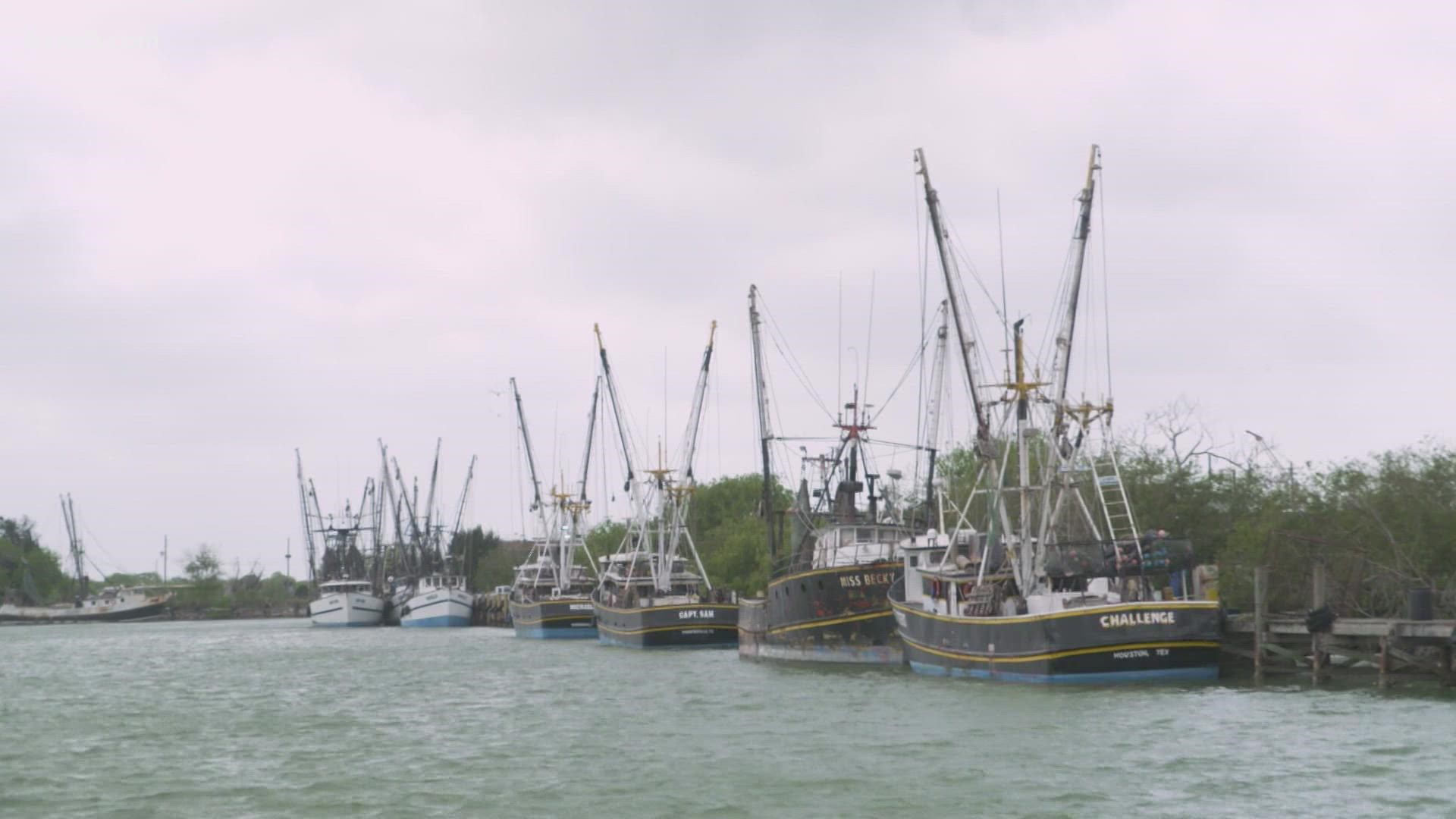BROWNSVILLE, Texas — The price of diesel is so high right now that many Texas shrimpers are struggling, not making money, fearing that they’ll lose their crews if they’re docked much longer.
If the prices of fuel don’t go down, industry experts and advocates tell KENS 5, shrimping in Texas will be in crisis.
“The majority of the vessels in the gulf, I would imagine they're either tied up at the dock right now or they're headed back to the dock, because they've run out of the cheap fuel,” said Andrea Hance, executive director of the Texas Shrimp Association. “And it [fuel prices] jumps around every day. If you do the math on that, that comes out anywhere from $60,000 to $100,000 just to fill up one of these boats for maybe a 60-day trip. We will not be able to make money on that.”
“The fuel is outrageous,” said Leonard Leyva, who manages a fleet of shrimp boats at the Port of Brownsville. “We can’t afford to go fishing with those prices.”
Leyva is not alone. He told KENS 5 the price of diesel is being felt by others in the shrimping business.
“I was talking to a guy that’s in Alabama, and he says, ‘Our fuel was almost at $4.90.’ He says, ‘We can't go.’ He says, ‘There's no way I can afford to go out with that price.’”
Leyva told KENS 5 the fleet he manages would be out on the water shrimping right about now.
“We can’t afford it, so we’re trying to hold the guys back,” he said. “Our biggest fear is they go to the island or elsewhere and they get jobs here on land. They make a decent living and now when it's time to go shrimping, you know, they're trying to wait things out, going, ‘I really don't think I want to go back shrimping.’ That is our biggest fear, because where am I going to find captains and rig men?”
Hance is worried about the same thing.
“We're looking at this right now as a crisis on top of a crisis,” Hance said. “The problem is, if these boats sit here very much longer, we're going to have to start letting these guys go. And we probably won't get them back.”
Her job, she said, is to protect the industry. She’s been doing that by trying to connect with anyone who’d listen.
“I've reached out to the Department of Agriculture, our governor, some of the local and state representatives,” Hance said. “A lot of the replies coming back to me is, ‘We're aware y'all are like the farming industry, blah, blah, blah,’ and we're really not!”
Hance told KENS 5, the shrimp is at its maximum price. The industry can’t pass the extra fuel cost to the consumer.
“We need that fuel price to get down to $3.25, to $3 in order for us to make any money,” she said. “So, the majority of the vessels are tied up. I don't foresee many of these vessels going out to fish with high fuel prices. I just don't see why they would.”
Hance said she was concerned that if businesses switch to farm-raised imported shrimp, it will be “an epic road to travel” to get them back.
Leyva is doing what he can to stay in business, staying ready to go back out into the gulf any minute.
“Right now we're doing a lot of maintenance,” he said. “If that fuel goes down – when it does – we got to go fishing quick, because I don't want these guys here too long.”

